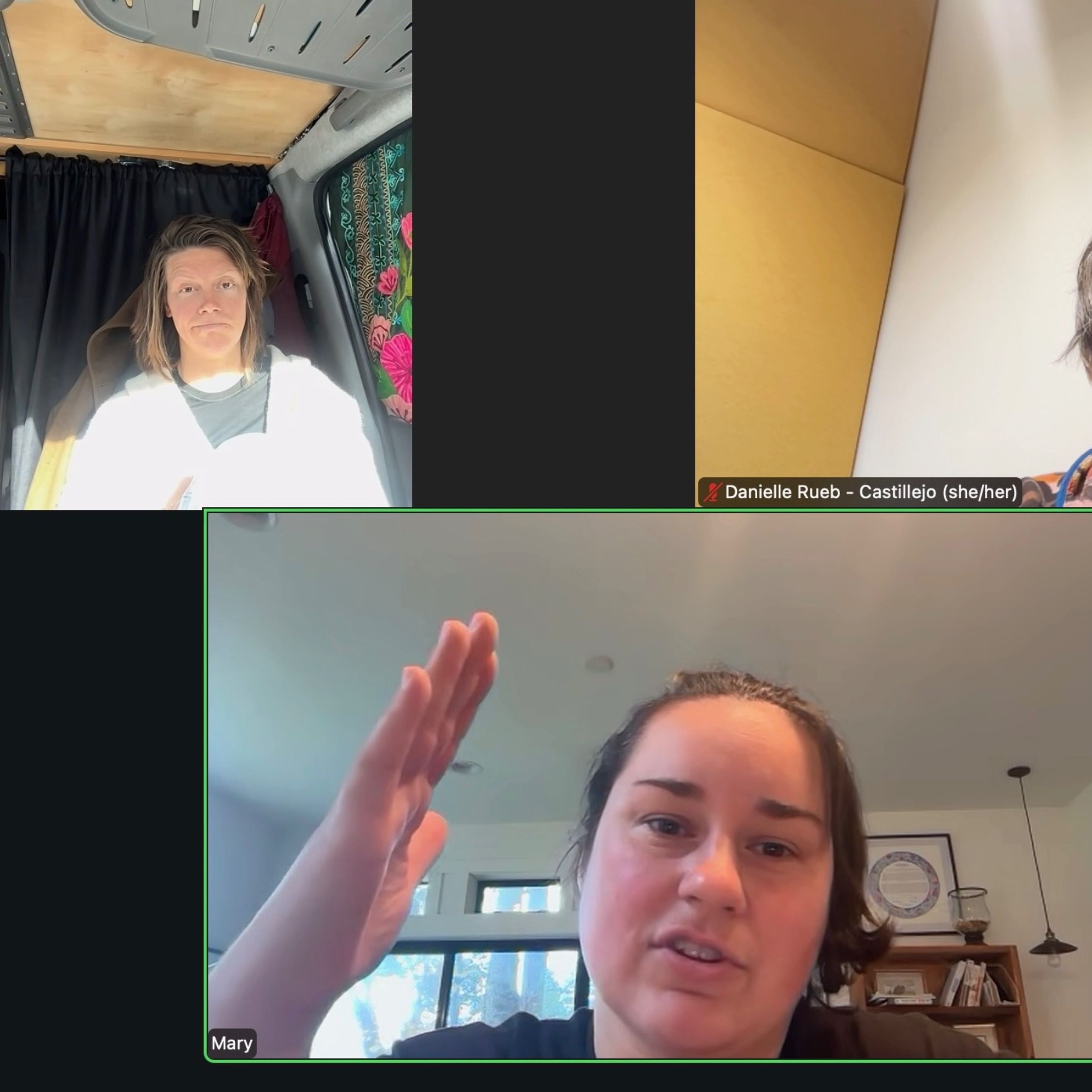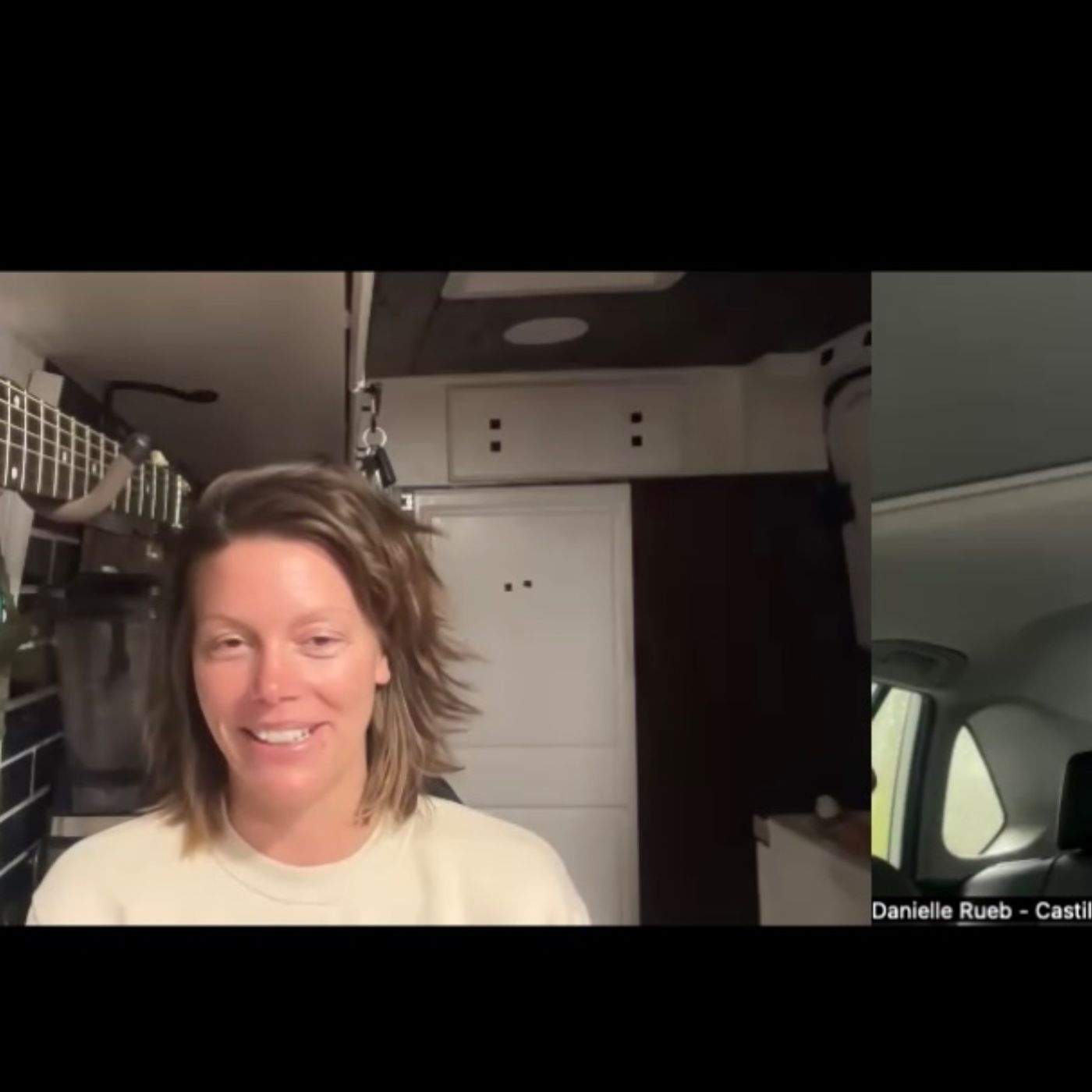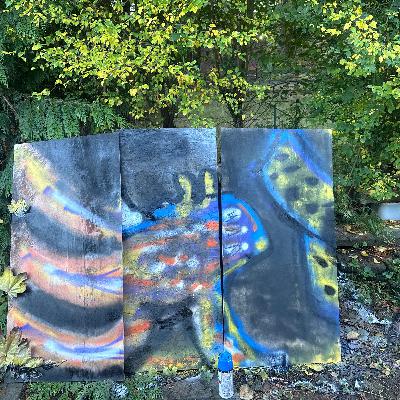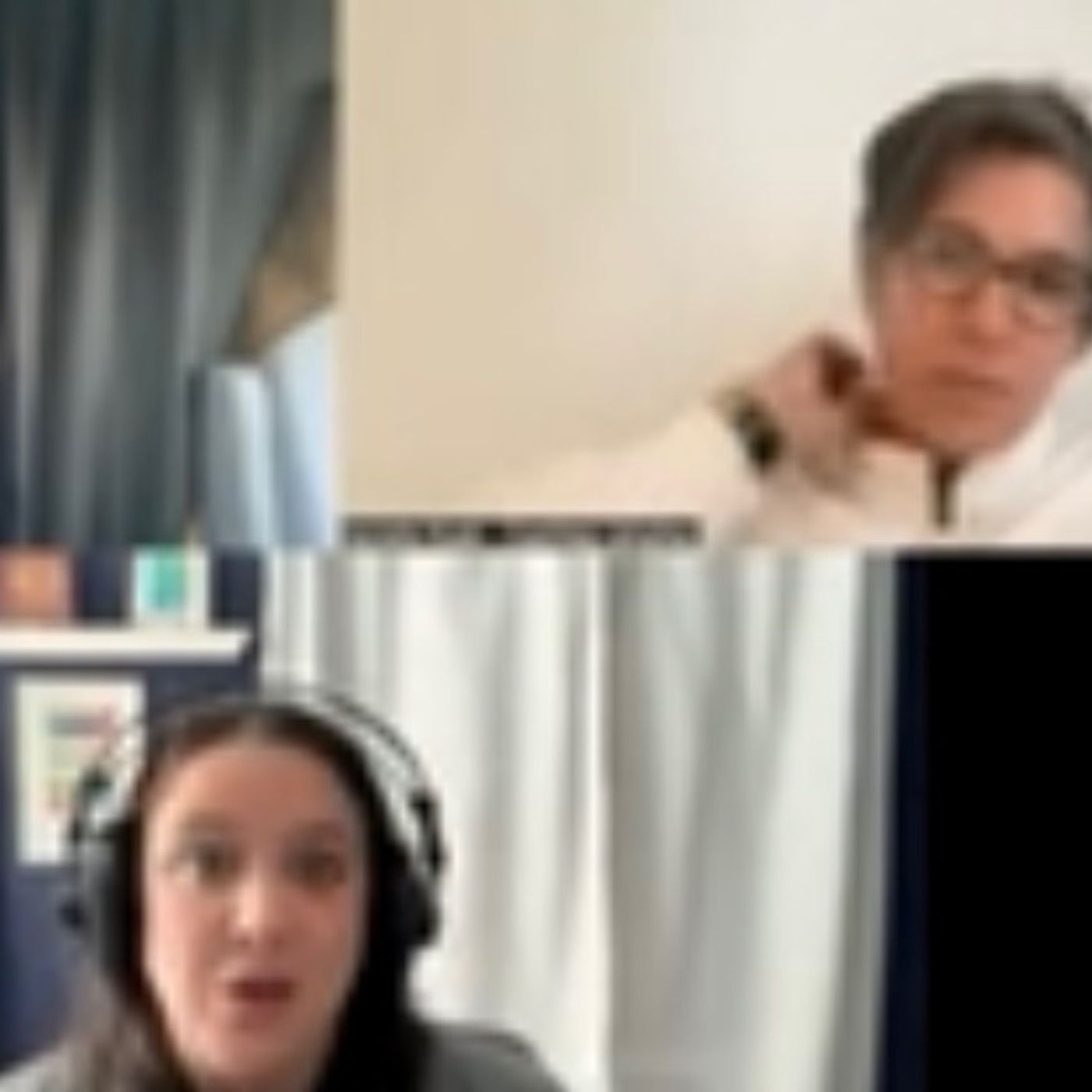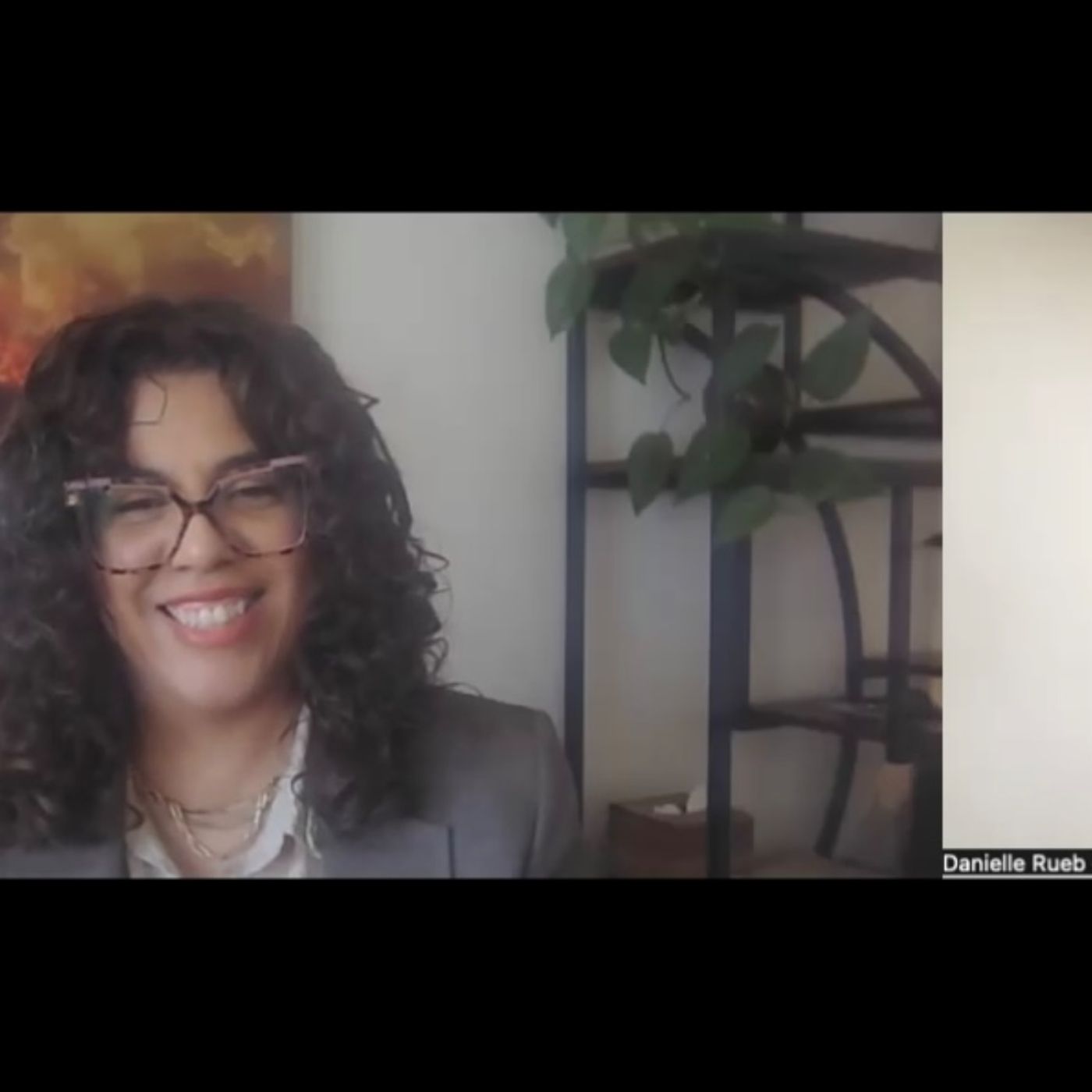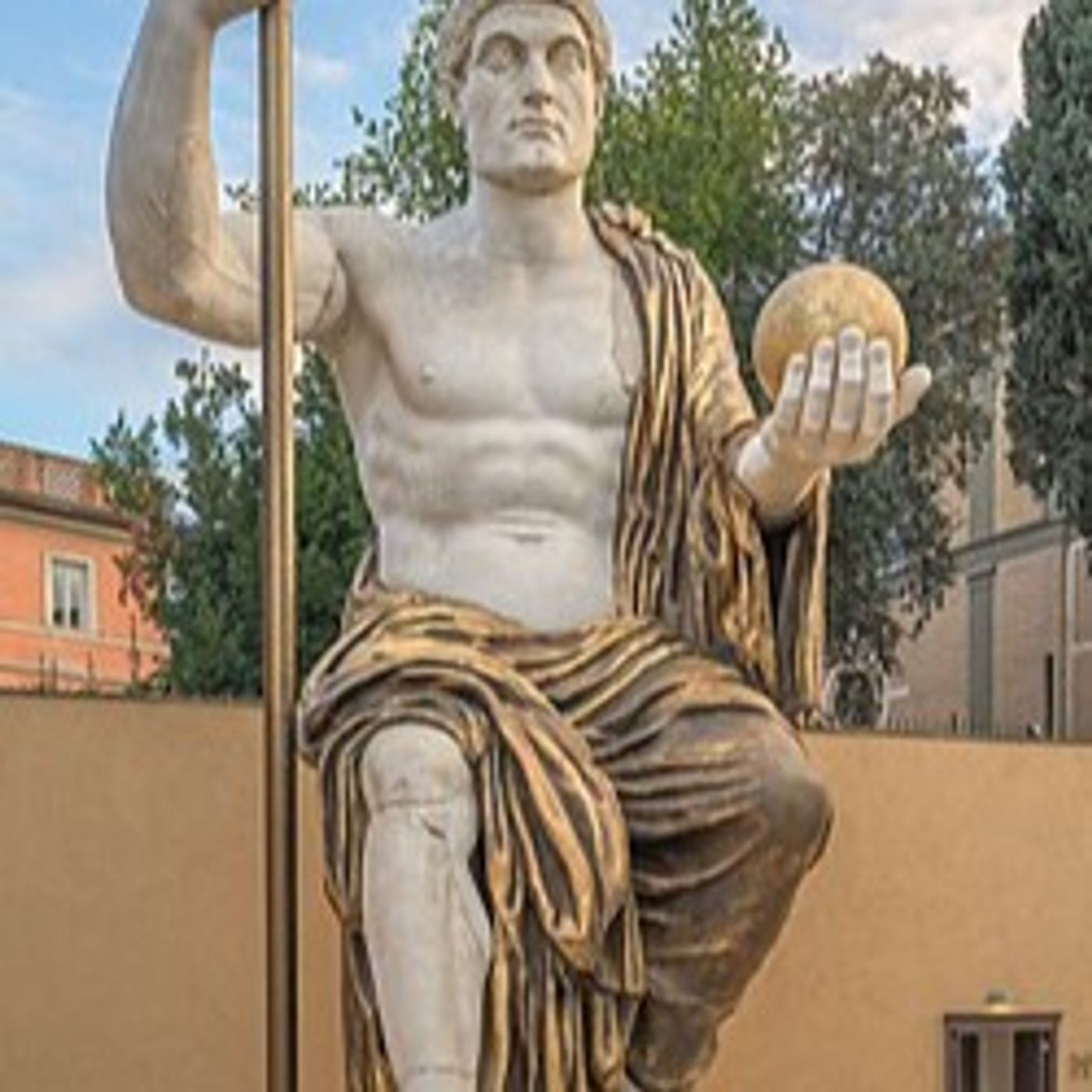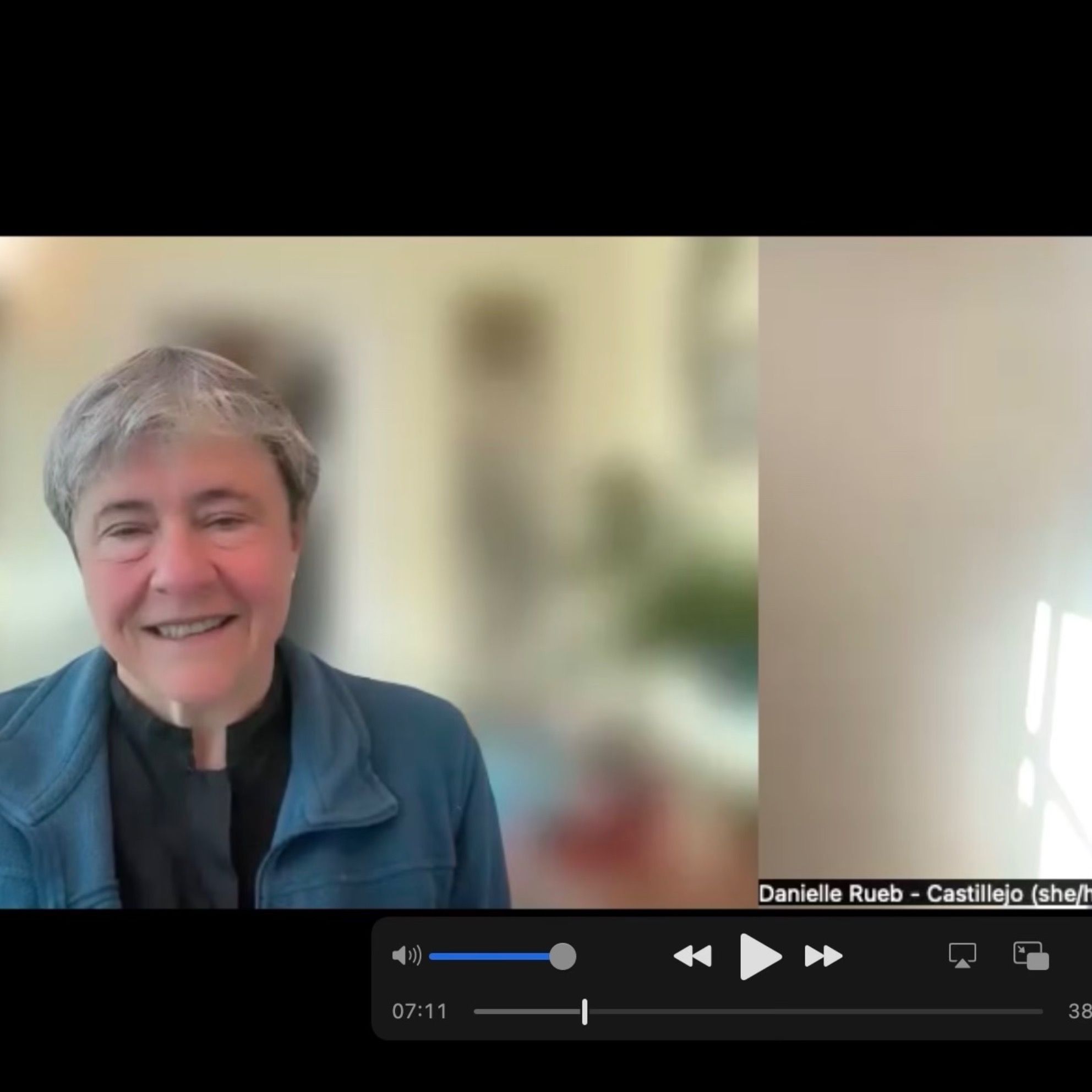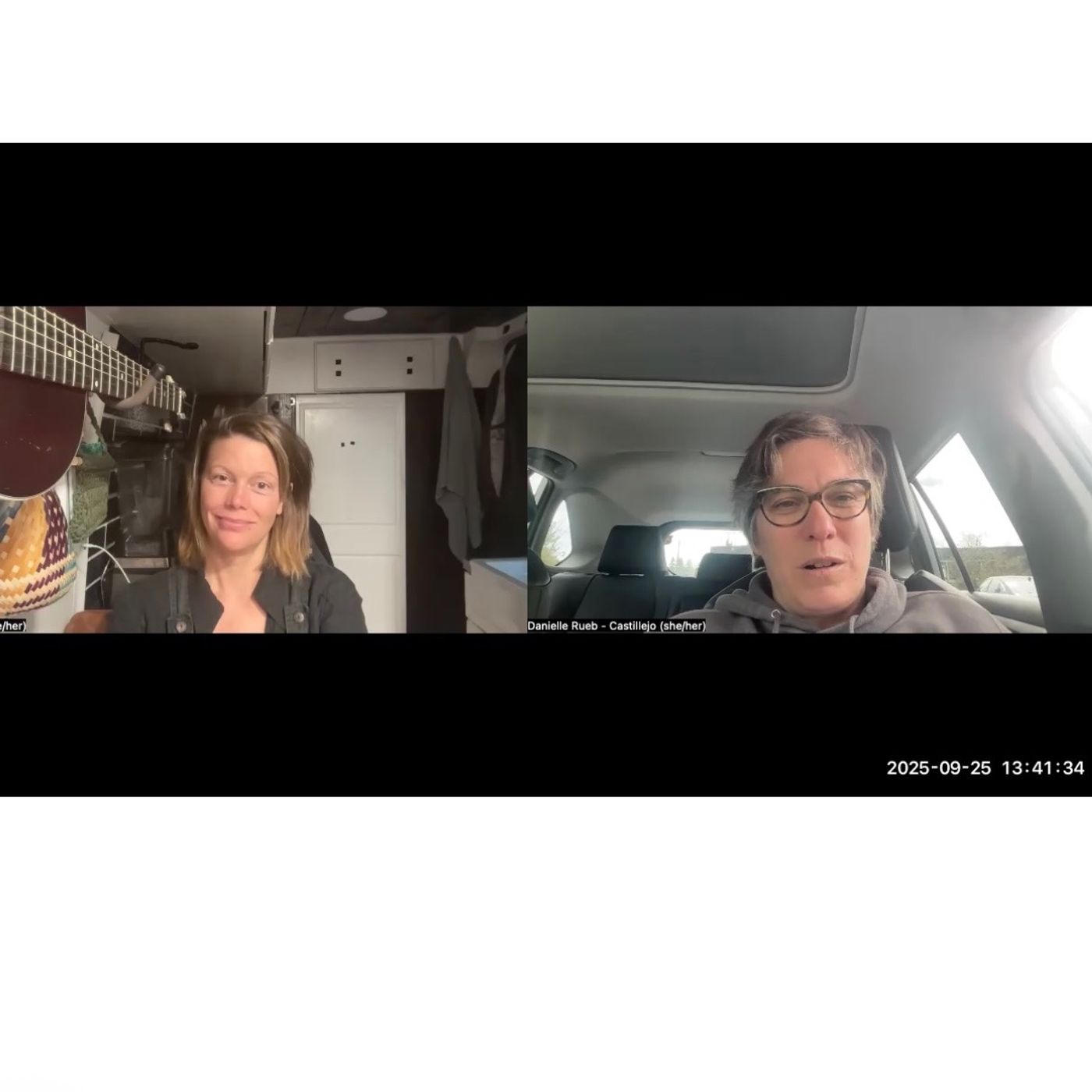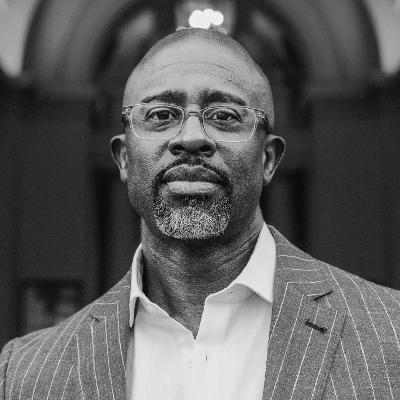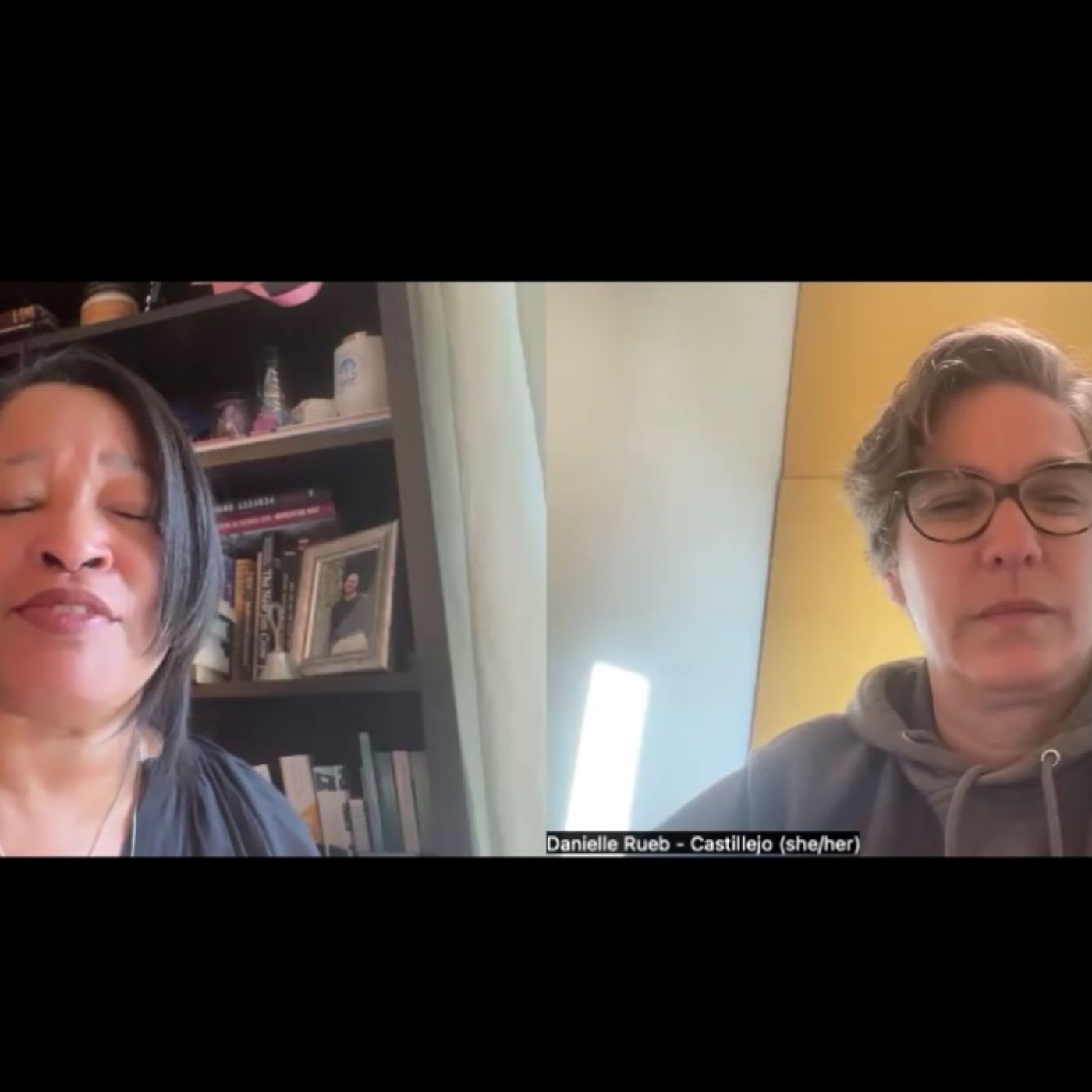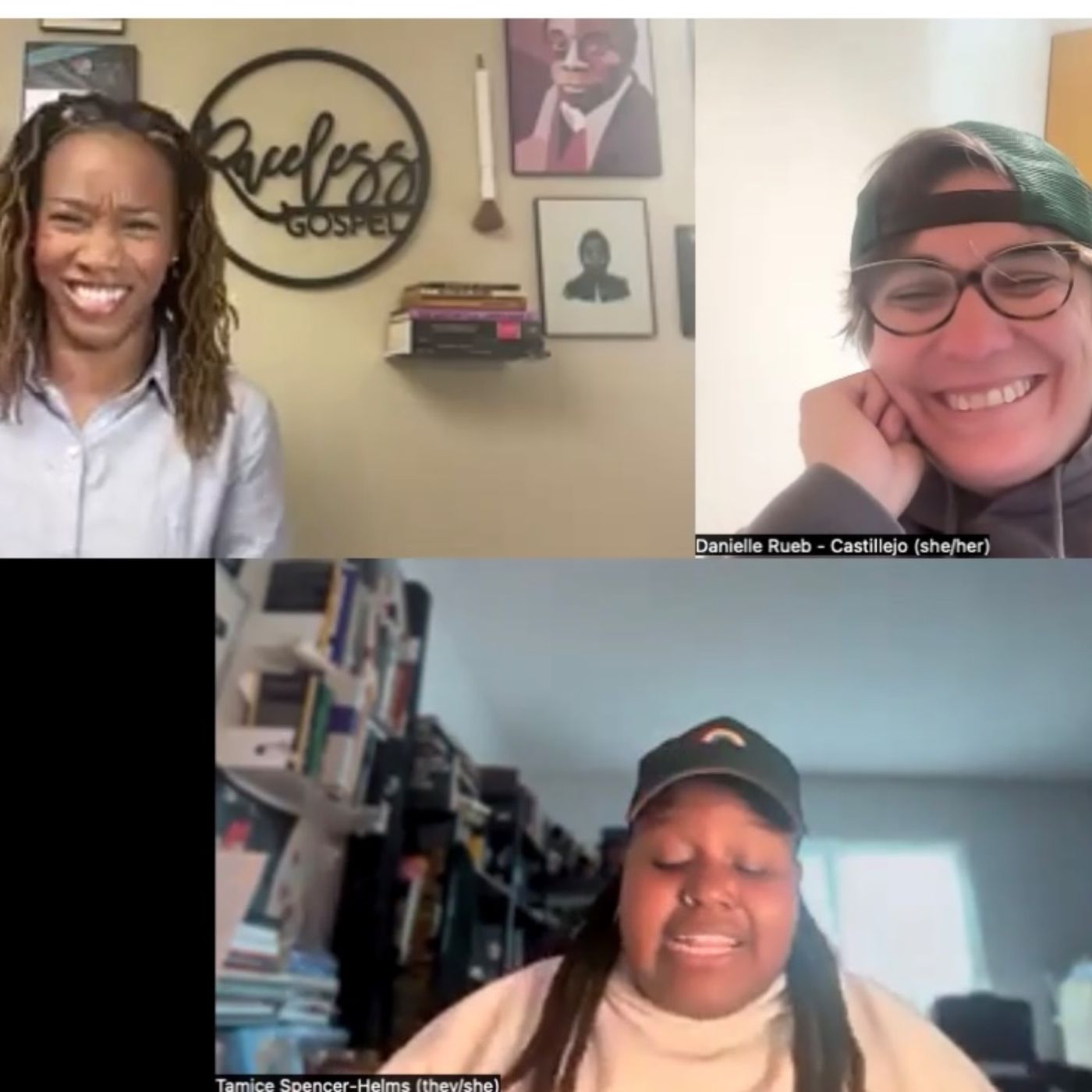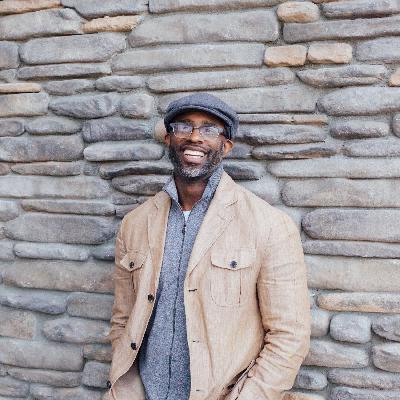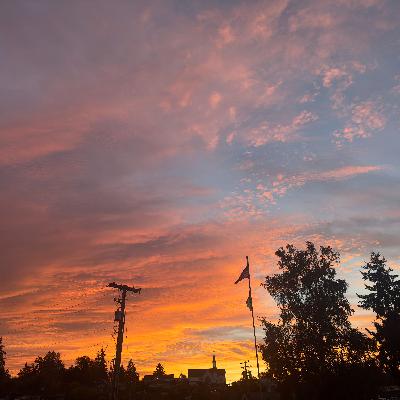Season 6, Episode 12: Jenny McGrath and Organizer Mary Lovell Reality and Organizing in this moment
Description
Mary Lovell is a queer grassroots organizer, visual artist, and activist who has been fighting oil and gas infrastructure and for social justice for their adult life - living up in the Kitsap Penninsula they are working on their first book and love working with people to build power in their communities
Welcome to the Arise podcast. This is episode 12, conversations on Reality. And today we're touching on organizing and what does it mean to organize? How do we organize? And we talk to a seasoned organizer, Mary Lavelle. And so Mary is a queer, grassroots organizer, visual artist and activist who has been fighting oil and gas infrastructure and fighting for social justice in their adult life. Living in the Kitsap Peninsula. They're working on their first book and love working with people to build power in their communities. Join us. I hope you stay curious and we continue the dialogue.
Danielle (00:02 ):
Okay, Mary, it's so great to have you today. Just want to hear a little bit about who you are, where you come from, how did you land? I know I met you in Kitsap County. Are you originally from here? Yeah. Just take it
Mary (00:15 ):
Away. Yeah. So my name is Mary Lovel. I use she or they pronouns and I live in Washington State in Kitsap County. And then I have been organizing, I met Danielle through organizing, but I've spent most of my life organizing against oil and gas pipelines. I grew up in Washington state and then I moved up to Canada where there was a major oil pipeline crossing through where I was living. And so that got me engaged in social justice movements. That's the Transmountain pipeline, which it was eventually built, but we delayed it by a decade through a ton of different organizing, combination of lawsuits and direct action and all sorts of different tactics. And so I got to try and learn a lot of different things through that. And then now I'm living in Washington state and do a lot of different social justice bits and bobs of organizing, but mostly I'm focused on stopping. There's a major gas build out in Texas and Louisiana, and so I've been working with communities down there on pressuring financiers behind those oil and gas pipelines and major gas export. But all that to say, it's also like everyone is getting attacked on all sides. So I see it as a very intersectional fight of so many communities are being impacted by ice and the rise of the police state becoming even more prolific and surveillance becoming more prolific and all the things. So I see it as one little niche in a much larger fight. Yeah,
Yeah, totally. I think when I moved up to Canada, I was just finished high school, was moving up for college, had been going to some of the anti-war marches that were happening at the time, but was very much along for the ride, was like, oh, I'll go to big stuff. But it was more like if there was a student walkout or someone else was organizing people. And then when I moved up to Canada, I just saw the history of the nation state there in a totally different way. I started learning about colonialism and understanding that the land that I had moved to was unseated Tu Squamish and Musqueam land, and started learning also about how resource extraction and indigenous rights went hand in hand. I think in general, in the Pacific Northwest and Coast Salish territories, the presence of indigenous communities is really a lot more visible than other parts of North America because of the timelines of colonization.
(03:29 ):
But basically when I moved and had a fresh set of eyes, I was seeing the major marginalization of indigenous communities in Canada and the way that racism was showing up against indigenous communities there and just the racial demographics are really different in Canada. And so then I was just seeing the impacts of that in just a new way, and it was just frankly really startling. It's the sheer number of people that are forced to be houseless and the disproportionate impacts on especially indigenous communities in Canada, where in the US it's just different demographics of folks that are facing houselessness. And it made me realize that the racial context is so different place to place. But anyways, so all that to say is that I started learning about the combination there was the rise of the idle, no more movement was happening. And so people were doing a lot of really large marches and public demonstrations and hunger strikes and all these different things around it, indigenous rights in Canada and in bc there was a major pipeline that people were fighting too.
(04:48 ):
And that was the first time that I understood that my general concerns about climate and air and water were one in the same with racial justice. And I think that that really motivated me, but I also think I started learning about it from an academic standpoint and then I was like, this is incredibly dumb. It's like all these people are just writing about this. Why is not anyone doing anything about it? I was going to Simon Fraser University and there was all these people writing whole entire books, and I was like, that's amazing that there's this writing and study and knowledge, but also people are prioritizing this academic lens when it's so disconnected from people's lived realities. I was just like, what the fuck is going on? So then I got involved in organizing and there was already a really robust organizing community that I plugged into there, but I just helped with a lot of different art stuff or a lot of different mass mobilizations and trainings and stuff like that. But yeah, then I just stuck with it. I kept learning so many cool things and meeting so many interesting people that, yeah, it's just inspiring.
Jenny (06:14 ):
No, that's okay. I obviously feel free to get into as much or as little of your own personal story as you want to, but I was thinking we talk a lot about reality on here, and I'm hearing that there was introduction to your reality based on your education and your experience. And for me, I grew up in a very evangelical world where the rapture was going to happen anytime and I wasn't supposed to be concerned with ecological things because this world was going to end and a new one was going to come. And I'm just curious, and you can speak again as broadly or specifically if the things you were learning were a reality shift for you or if it just felt like it was more in alignment with how you'd experienced being in a body on a planet already.
Mary (07:08 ):
Yeah, yeah, that's an interesting question. I think. So I grew up between Renton and Issaquah, which is not, it was rural when I was growing up. Now it's become suburban sprawl, but I spent almost all of my summers just playing outside and very hermit ish in a very kind of farm valley vibe. But then I would go into the city for cool punk art shows or whatever. When you're a teenager and you're like, this is the hippest thing ever. I would be like, wow, Seattle. And so when I moved up to Vancouver, it was a very big culture shock for me because of it just being an urban environment too, even though I think I was seeing a lot of the racial impacts and all of the, but also a lot of just that class division that's visible in a different way in an urban environment because you just have more folks living on the streets rather than living in precarious places, more dispersed the way that you see in rural environments.
(08:21 ):
And so I think that that was a real physical shift for me where it was walking around and seeing the realities people were living in and the environment that I was living in. It's like many, many different people were living in trailers or buses or a lot of different, it wasn't like a wealthy suburban environment, it was a more just sprawling farm environment. But I do think that that moving in my body from being so much of my time outside and so much of my time in really all of the stimulation coming from the natural world to then going to an urban environment and seeing that the crowding of people and pushing people into these weird living situations I felt like was a big wake up call for me. But yeah, I mean my parents are sort of a mixed bag. I feel like my mom is very lefty, she is very spiritual, and so I was exposed to a lot of different face growing up.
(09:33 ):
She is been deep in studying Buddhism for most of her life, but t

